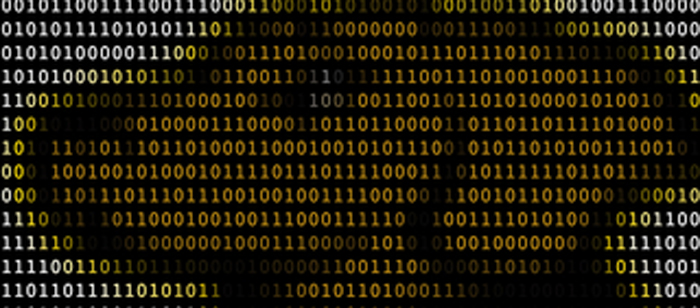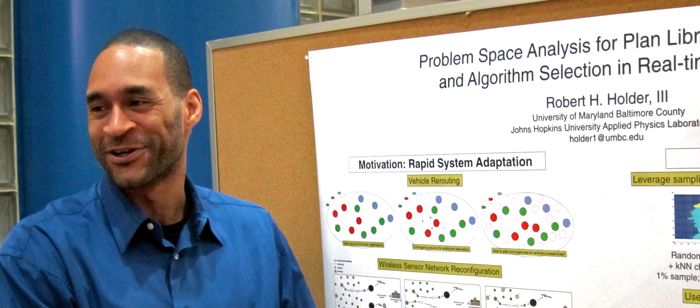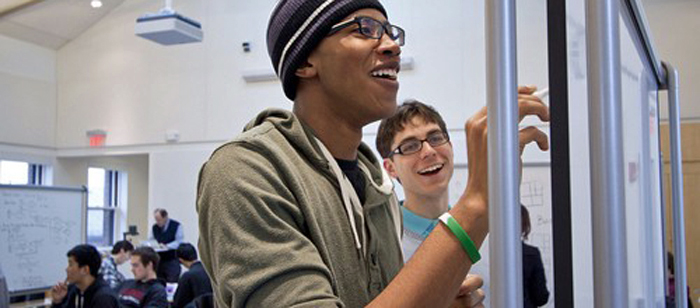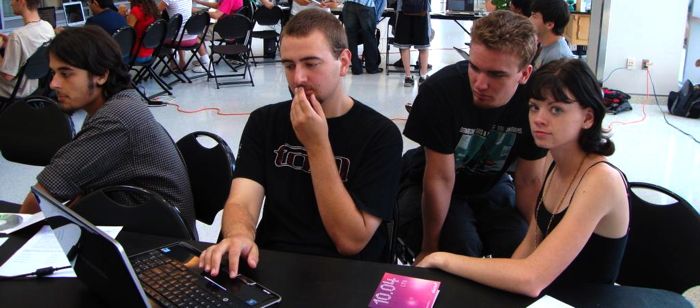Make friends and talk code! The UMBC Council of Computing Majors will hold its first meeting of the year at 3:00pm on Wednesday, February 20 in ITE 210 on Main Street in the Commons. CCM is an undergraduate student organization dedicated to promoting the fields of computer science and computer engineering. All majors are welcome! Come if you are interested in joining or just finding out more about the CCM.
Council of Computing Majors to meet 3pm Wed 2/20, ITE 210
App-ademics: Dr. Banerjee's Intro to Mobile Computing course teaches Smartphone app development
App-ademics
CSEE professor Nilanjan Banerjee’s new Introduction to Mobile Computing class gives Computer Science students the skills to break into the exploding field of mobile application development.
 Today, more than 125 million Americans own a Smartphone. That’s nearly 40% of the 315 million people living in the United States. And, those numbers are only growing.
Today, more than 125 million Americans own a Smartphone. That’s nearly 40% of the 315 million people living in the United States. And, those numbers are only growing.
For these millions of Americans, their phone is so much more than a tool for making phone calls. It’s a personal planner and a video game console; a GPS and an MP3 player. These days you can download Smartphone applications to add almost any type of functionality to your phone. Dr. Nilanjan Banerjee’s new Introduction to Mobile Computing class is inspired by this growing trend. In it, Dr. Banerjee is teaching students how to create helpful and inventive Smartphone applications.
First, the course teaches mobile phone programming essentials like UI programming, data management, localization, and programming sensors like the accelerometer and compass, mobile OS services, and mobile phone games.
Then, students work in teams of two to dream up and build unique applications for the Windows 8 platform and android platform. “Mobile System development requires strong programming skills, knowledge of networking and OS, working with phone sensors, and user interface design,” explains Dr. Banerjee. “I hope that the students will learn how to use these concepts together to build real applications.”
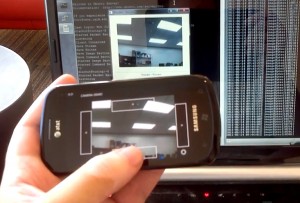 The class is partially supported by Microsoft’s Project Hawaii Initiative. The benefits of this partnership are two-fold. First, it supplies the class with fifteen Nokia Lumia 920 phones for app building. Second, the partnership gives students access to Microsoft’s set of cloud services, which allows students to create more complex smartphone applications.
The class is partially supported by Microsoft’s Project Hawaii Initiative. The benefits of this partnership are two-fold. First, it supplies the class with fifteen Nokia Lumia 920 phones for app building. Second, the partnership gives students access to Microsoft’s set of cloud services, which allows students to create more complex smartphone applications.
“Complex mobile applications like image processing or text-to-speech require computational resources which may not be available on Smartphones,” explains Dr. Banerjee. “Hence, they leverage cloud services—these are services such as a text-to-speech engine resident on powerful backend servers.”
When Dr. Banerjee taught Introduction to Mobile Computing at the University of Arkansas, students produced a range of creative applications. One team created a remote security system for cars (pictured left). The system used a Smartphone to remotely control a video camera placed inside of the vehicle.
Another student created Project Pond, simple touch-based game (pictured right). In the game, players use their fingertips to create ripples in a simulated pond. As the game progresses, the player must use the ripples to destroy enemies like crawfish, red tadpoles, and dragonflies.
While dreaming up application ideas, the sky is the limit for students. Dr. Banerjee only requires that the applications solve  real world problems and use sensors available on the phone. All the applications must be demonstrated in a Poster/Demo session that will be organized at the end of the semester.
real world problems and use sensors available on the phone. All the applications must be demonstrated in a Poster/Demo session that will be organized at the end of the semester.
Dr. Banejree, himself an iPhone user who swears by the Maps application, says that knowing how to create these applications is a huge asset for Computer Science students today. “The importance of the field can be seen by the simple fact that smartphone/tablet sales have surpassed desktops now,” he says. “With the advent of more computationally capable phone platforms, integration of sensors in smartphones, and advancements in cloud computing, it is clear that this field is going to grow in importance in the coming years.”
CSEE graduate students participate in UMBC's 35th Graduate Research Conference
Twenty-three CSEE graduate students will present their research at UMBC's 35th Annual Graduate Research Conference (GRC) on Wednesday 20 February 2013. Oral and poster presentations will take place between 9:00am and 12:30pm in the Commons and University Center. There will be a lunch at 1:00pm in the UC Ballroom followed by a panel on civic engagement from 1:30 to 2:15 in which UMBC graduate students, faculty and administrators will discuss activities fostering civic engagement, including graduate level courses with a community engagement component, GSA's Food for Thought project, and Dr. Shaun Kane's Accessibility Hack Day.
Here are the presentations from CSEE students.
09:00am-10:30am Oral Presentations I (Commons 329)
- Sumeet Bagde, Iterative quantum algorithms
- Jared Dixon, Laser Photothermal Therapy Using Gold Nanorods
- Ben Johnson, A Reference Advisor to an Automatic Text Understanding Engine
- Yatish Kumar Joshi, Autonomous Recovery from Multi-node Failure in Wireless Sensor Networks
- Lisa Mathews, A Collaborative Approach to Situational
9:00am – 10:00am, Poster Presentation I (University Center 312)
- Shihyu Chen, Weighted Radial Basis Function Kernels- Based Support Vector Machines for Multispectral Magnetic Resonance Brain Image Classification
- Prajit Das, Energy efficient semantic context model for managing privacy on smartphones
- Deepal Dhariwal, Text and Ontology driven Information Extraction from Clinical Narratives
- Roshan Ghumare, Distributed Average Consensus in WSN
- Clare Grasso, Identifying Safety Risks Due to Medical Treatment in Patients with Chronic Kidney Disease using KDD
- Neha Sardesai, Develop a System Analysis Model for Trace Gas Detection using a Pulsed Laser and QEPAS
- Puneet Sharma, A Cross-Layer Approach to Detection of Hardware Trojans
- Jennifer Sleeman, Online Unsupervised Coreference Resolution for Semi- Structured Heterogeneous Data
- Shiming Yang, An Adaptive Observation Site Selection Strategy for Road Traffic Data Assimilation
11:00am – 12:15pm, Oral Presentations II (Commons 329)
- Randy Schauer, Reducing Thermal Impact using Probabilistic Energy-Aware Job Scheduling
- Jon Ward, On the Use of Distributed Relays to Increase Base Station Anonymity in Wireless Sensor Networks
- Fahad Zafar, Computational Observer Approach for Assessment of Stereoscopic Visualizations in 3D Medical Data Sets
- Guohao Zhang, Is More Realism Better? Towards Finding the Effectiveness of Visual Realism on Three-Dimensional Streamtube Visualization
11:00am – 12:00pm, Poster Presentation II (University Center 312)
- Arnav Joshi, Generating a linked data resource for software security concepts and vulnerability descriptions
- Vlad Korolev,Machine Learning Methods for Assessment of Risk of Chronic Disease
- Sandhya Krishnan, Social Media Analytics : Digital Footprints
- Ravendar Lal, Information Extraction of Security related entities, concepts and relations from unstructured text
- Varish Mulwad, Exploiting Semantics in Graphical Models for Generating Linked Data from Tables
Spring 2013 Note from the Chair
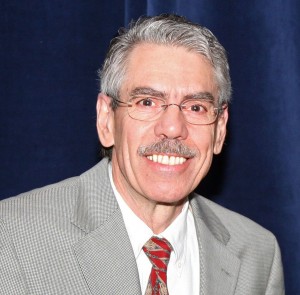 This semester we have a departure and arrival to announce. Professor Yung-Jui (Ray) Chen has retired. Ray has been with UMBC for twenty-four years. He taught courses in electronics and circuit theory and initiated research in compound semiconductors here at UMBC. He served as Program Director for the Electrical Engineering program in its early days. We hope to see him often and wish him well.
This semester we have a departure and arrival to announce. Professor Yung-Jui (Ray) Chen has retired. Ray has been with UMBC for twenty-four years. He taught courses in electronics and circuit theory and initiated research in compound semiconductors here at UMBC. He served as Program Director for the Electrical Engineering program in its early days. We hope to see him often and wish him well.
On the arrival side, Dr. Pedram Sadeghian has joined our department as a computer science lecturer. Pedram comes to us from Howard Community College (HCC), where he spent more than five years as an Assistant Professor and Coordinator of Computer Science and Information Systems. Welcome aboard Pedram!
In October, Professor Anupam Joshi was named director of the new UMBC Center for Cybersecurity. Dr. Joshi and co-director Dr. Richard Forno, Graduate Program Director Cybersecurity, will work together to advance UMBC’s position as a leading research university in the field of Cybersecurity.
The CSEE department continues to do well in its mission. Last Academic Year we recorded approximately $5 million in research expenditures in spite of the very difficult funding environment. We have reached a milestone of producing 238 PhD’s since 1986.
On the teaching forefront, the Hrabowski Fund for Innovation has awarded an Implementation and Research Grant to a team led by professor Marie desJardins for “Active Computing Teaching and InnoVation Environment” (ACTIVE). ACTIVE will be a dynamic “laptop laboratory” that will support innovation in computing courses–with a particular focus on improving the retention and success of women, underrepresented minorities, and transfer students. The laboratory will extend active-learning environments, such as CASTLE and the new English writing labs, to a new area of the university.
Looking towards the future, we anticipate searching for a new tenure-track Assistant Professor in Computer Science. Have a great Spring semester. Keep up to date by visiting www.csee.umbc.edu.
Go Ravens
Dr. Gary Carter
Chair, Computer Science and Electrical Engineering
CSEE Newsletter, Spring 2013
The Spring 2013 UMBC CSEE Newsletter is available and features articles on the new UMBC Center for Cybersecurity, a project to create a new student laptop lab for interactive and team learning, new faculty profiles, the Cyber Scholars program, a new course on applied networks security, and more.
See other issues of the CSEE Newsletter in the UMBC CSEE newsletter archive.
President Obama on computer science, Zuckerberg and video games
Yesterday President Obama held a Google+ hangout with a group of bloggers. Limor Fried, the CEO of robotics firm Adafruit Industries asked the President
"When I attended high school, I had to take a foreign language requirement. Can we make it a national effort to also add a computer programming language requirement?
The President, responding very positively, said "I think it makes sense, I really do" and talked about a conversation he had with Facebook founder Mark Zuckerberg to explain his thinking.
"Look at Mark Zuckerberg. I was sitting next to him at dinner a couple of years ago, and he said he taught himself programming primarily because he was interested in games. If we set programs in high schools that engage kids because they get it, they won’t be just sitting there slouching in back of rooms while someone is lecturing. Given how pervasive computers and the Internet is now, how integral it is in our economy, and how fascinated kids are with it, I want to make sure they actually know how to produce stuff and not simply consume stuff."
talk: Analytics for Cancer Survival Time, 1pm Fri 2/15, ITE227
UMBC CSEE Colloquium
Analytics for Cancer Survival Time
Dr. Shujia Zhou and Ran Qi
CSEE Department, University of Maryland, Baltimore County
1:00 pm Friday, 15 February 2013, ITE 227, UMBC
With advent of new medical technologies, more and more prognostic factors are discovered and used in predicting cancer survival time. Consequently, the number of cancer patient types increase significantly. However, there are limited therapies available for cancer patients. Therefore, there is an urgent need to develop accurate algorithms in grouping cancer patients so that a doctor can choose the optimal therapy for a cancer patient. In this talk we will introduce current grouping algorithms, discuss new approaches in improving their efficiencies, and present a prototype of prognostic system for cancer patients.
Dr. Shujia Zhou is a research associate professor of Computer Science and Electrical Engineering at UMBC. He received a Ph.D. from Washington University at St. Louis in 1993. He held a Director’s-funded Postdoctoral Fellowship at Los Alamos National Laboratory (LANL) and became a LANL technical staff member in 1996. At LANL, his researches in large-scale molecular dynamics simulations were published in the Journal of Science and reported in the journals of both Science and Nature. In 2000, he joined Northrop Grumman Corporation and worked on NASA Computation Technology Projects. He is a pioneer in accelerating climate and weather applications with multi-core processors such as,IBM’s Cell B.E. processor. His current research interests are big data analytics, in particular in finance and health.
Ran Qi received her M.S. degree in Computer Science from the Lamar University in 2009 and started her Ph.D program in Computer Science at the University of Maryland, Baltimore County in 2010. In 2011, she worked on train monitoring system development at Norfolk Southern for 4 months as a co-op intern. In January 2012, she worked on personalized medicine in IBM Toronto Lab for 3 weeks. Her current Ph.D research focus is data mining in health analytics and personal medicine including cancer survival analysis and developing a cancer prognostic system.
talk: Reinventing the Classroom, Harry Lewis, Noon Fri 3/1
Reinventing the Classroom
Gordon McKay Professor of Computer Science
Harvard University
12:00-2:00 ITE 456, UMBC
TALK AND LUNCH: 12:00-1:00. Lunch courtesy of Dr. Warren DeVries, Dean of the College of Engineering and Information Technology. RSVP on my.umbc.edu by Monday, February 25 to reserve a spot. Email requests from outside UMBC to .
DISCUSSION: 1:00-2:00. The community is invited to stay after the talk for an open discussion and conversation with Professor Lewis and your UMBC colleagues about designing new classroom spaces for active learning and the flipped classroom approach.
For decades my lectures kept getting better, my enrollments kept going up, and the number of warm bodies in the lecture hall kept going down. So I decided to try something entirely different, a "flipped classroom." Students watched lectures over the Internet at night in their rooms, and spent class time solving problems under supervision in small groups. The subject matter was discrete mathematics, which is well suited to this pedagogical style, but the class was so successful that it is being adapted for use in other Harvard courses. I will report on some of the conceptual and practical problems I encountered, including the creation of a new teaching space, which had to be cheap to construct and adaptable in use since the experiment might have failed.
Harry Lewis is Gordon McKay Professor of Computer Science at Harvard, where he has taught since 1974. He is uncertain whether he should be proud of his role in launching the careers of Bill Gates and Mark Zuckerberg, both of whom dropped out of Harvard shortly after taking his course. From 1995-2003 Lewis served as Dean of Harvard College. In this capacity he oversaw the undergraduate experience, including residential life, career services, public service, academic and personal advising, athletic policy, and intercultural and race relations. He is a long time member of the College’s Admissions Committee.
For more information, see his article Reinventing the Classroom in the Fall 2013 issue of Harvard Magazine.
Linux Users Group to meet 12-1 Mondays in ITE234
The UMBC Linux Users Group (LUG) will meet during the spring semester on Mondays starting on February 4 from Noon to 1:00pm in ITE 234. If you are interested in becoming a member, please come to a few meetings and check it out.
The UMBC LUG was established in 1997 as an organization of and for people interested in the Linux operating system. This includes people who want to learn how to install and use it on their personal computers as well as those who use it regularly and want to expand and deepen their knowledge about it.
The LUG also helps members and non-members install, update and use Linux Operating System and software during its periodic Installfests.
UMBC-LUG members come from all walks of life and courses of study. You'll find among its ranks faculty, staff and students from Information Systems, Chemistry, Mechanical Engineering, Math, Visual Arts, Sociology, Music, Social Work, and yes, even Computer Science, all bound together by a common love of Linux. Membership is not limited to UMBC students and attendance by non-members and prospective members is always welcome.
Cybersecurity scholarships: February 8 deadline
Scholarships for for rising juniors and seniors and graduate students interested in cybersecurity-related studies are availabe, with a deadline of February 8 for two programs: the Information Assurance Scholarship Program and the Federal Cyber Service Scholarship for Service. US citizens capable of receiving security clearances are eligible for these programs. These scholarships require the recipient to work for the government following graduation. The awards include full tuition, stipend ($30k/year for PhD students, $25k/year for MS/MPS students, and $20k/year for BS students), and more. See this announcement for more information.
